Publications
Articles, publications, books, tools and multimedia features from the U.S. Institute of Peace provide the latest news, analysis, research findings, practitioner guides and reports, all related to the conflict zones and issues that are at the center of the Institute’s work to prevent and reduce violent conflict.
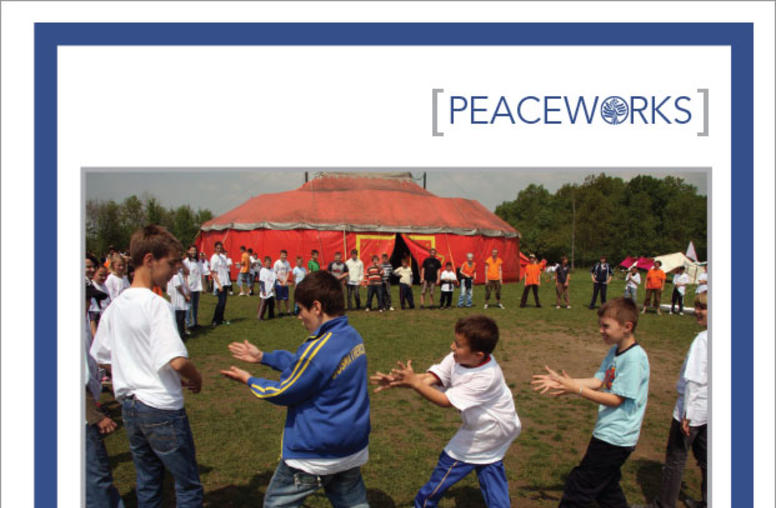
Reconciliation in Practice
Reconciliation projects face two critical challenges: the situation on the ground in postconflict settings and the gap between reconciliation theory and practice. If the society is to transition successfully to a new path forward, the critical knowledge gap must first be closed. The first step is assessing work recently completed or now in progress. How do organizations even define reconciliation? What activities are being undertaken to that end? What theories underpin intervention strategies...
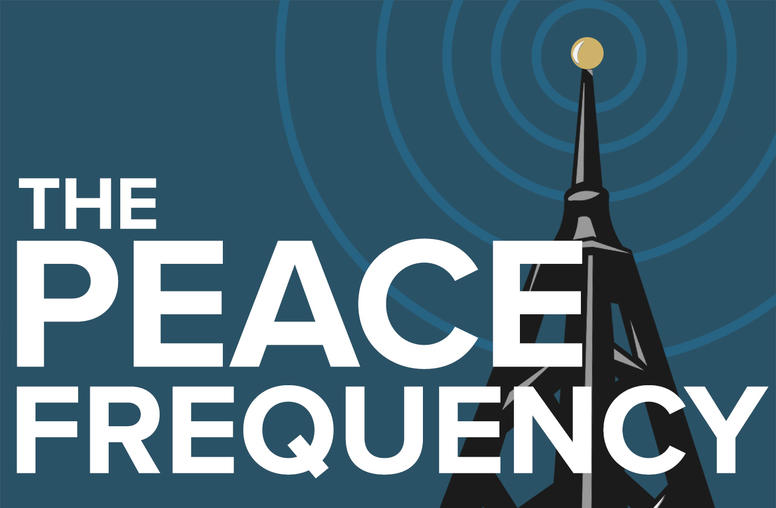
Episode 32 - Ben Naimark Rowse
In this episode we speak with Benjamin Naimark-Rowse – a PhD candidate at the Fletcher School for Law and Diplomacy at Tufts University. His dissertation, in the works, is titled “Dear Friend: Correspondence Across Enemy Lines,” which looks at the relationship Nelson Mandela had with leaders of the Apartheid government during and immediately after his 27 years in prison.
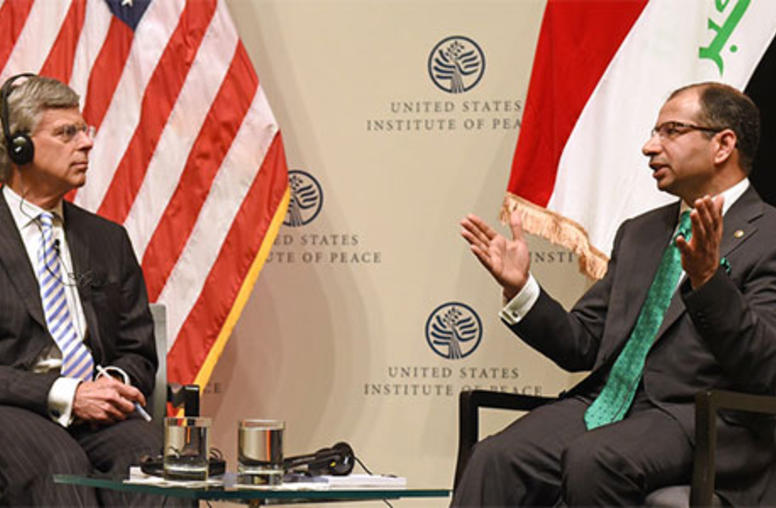
Iraq Needs Political Reconciliation to Defeat ISIS, Parliament Speaker Says
Iraq must achieve a political reconciliation among its long-divided religious and ethnic groups as a first step toward defeating the Islamic State (ISIS) extremists who control a third of the country, Iraq’s parliament speaker said at the U.S. Institute of Peace. Reconciliation will rely heavily on building police and military forces that those disparate communities can trust, said the speaker, Saleem al-Jubouri.
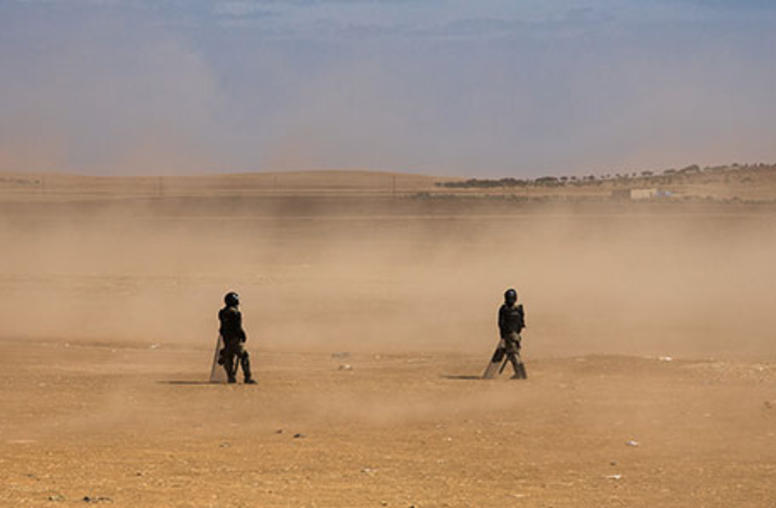
What to Do When Foreign Fighters Come Home
Not every Westerner who comes home after joining the Islamic State is a threat. But whether they ultimately live a life of peace or violence can be shaped by what they find when they get back.
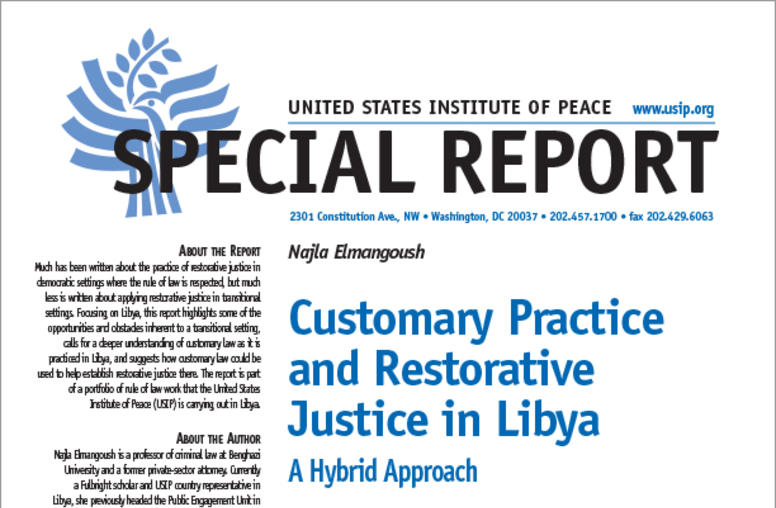
Customary Practice and Restorative Justice in Libya: A Hybrid Approach
Four years after the fall of Muammar Gadhafi, Libya has become even more violent. Explosions, assassinations, kidnappings, and fighting between militias are commonplace. The central government is extremely fragile. This report highlights some of the opportunities and obstacles in a transitional setting. Its goal is to spark debate among scholars, policymakers, practitioners, and civil society actors about the role of customary law and the potential of restorative justice in a transitional set...
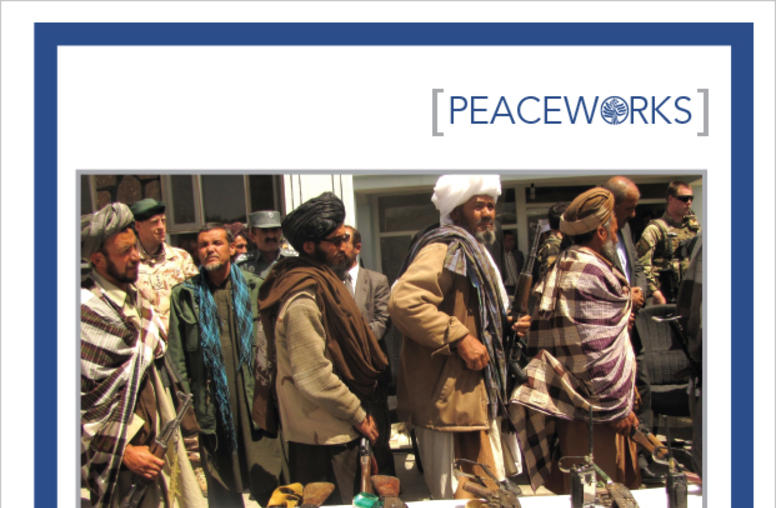
The Politics of Disarmament and Rearmament in Afghanistan
Four international programs designed to disarm, demobilize, and reintegrate militias in Afghanistan since 2001 have largely failed. They have instead largely reinforced existing power relations. Perhaps their gravest impact has been to deepen patterns of political exclusion that underlie much of the violence that have driven support for the insurgency. Demilitarization, this report makes clear, is only part of a wider political process, both with Taliban leaders and between pro-government fac...
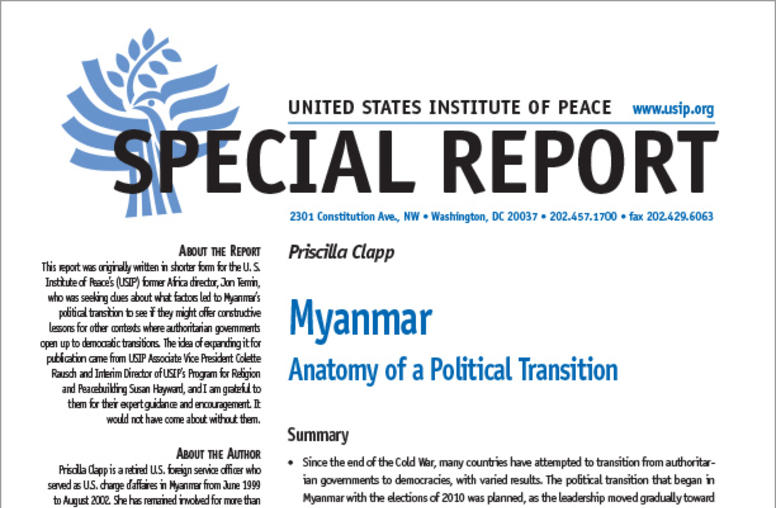
Myanmar
Many countries have attempted to transition from authoritarian governments to democracies, with many false starts. The political transition that began in Myanmar with the elections of 2010 was heavily planned by military leaders to gradually move toward democratization while retaining many of the authoritarian structures of the previous government during the transition. As Myanmar’s success has attracted great interest and support from the international community, this study analyzes the elem...
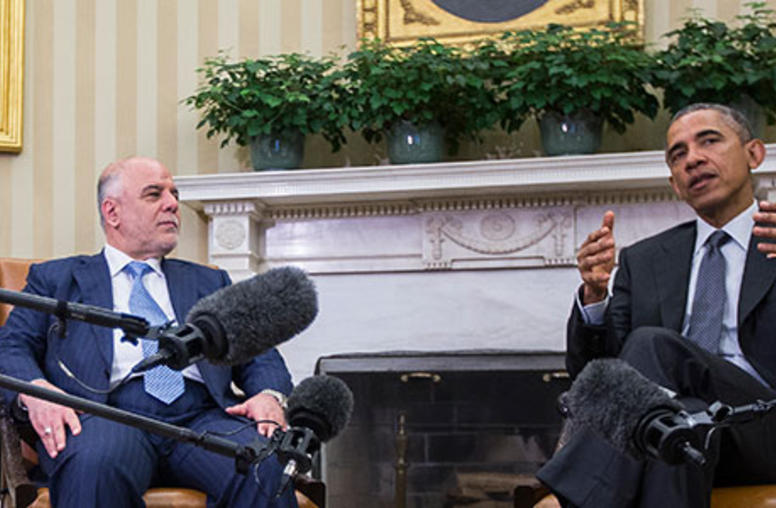
Winning the Peace in Iraq is Bigger than Winning the War
The plan for Iraq's future needs to go deeper than defeating the Islamic State.
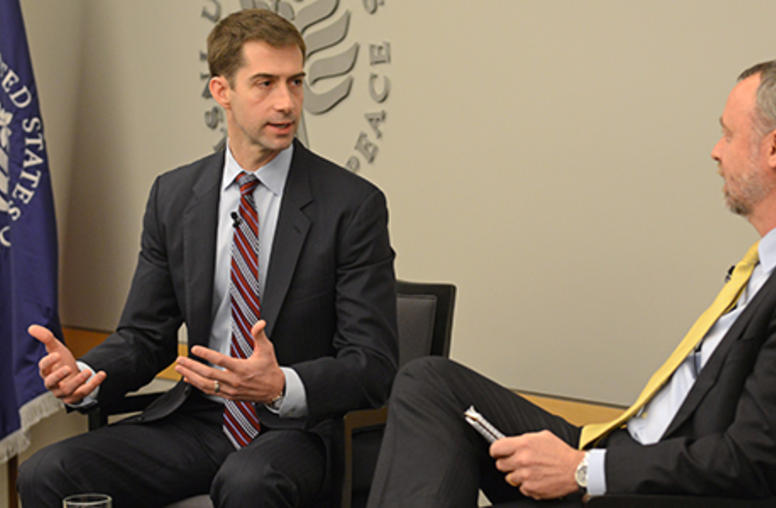
Iraq Crisis Builds Bipartisan Support for Keeping U.S. Troops in Afghanistan, Senator Cotton Says
The revival by ISIS of a brutal Islamist offensive in Iraq makes it urgent to prevent a similar reversal in the Afghan war—and is increasing congressional support for President Obama to maintain U.S. troops in Afghanistan, Senator Tom Cotton (R-Arkansas) said today.
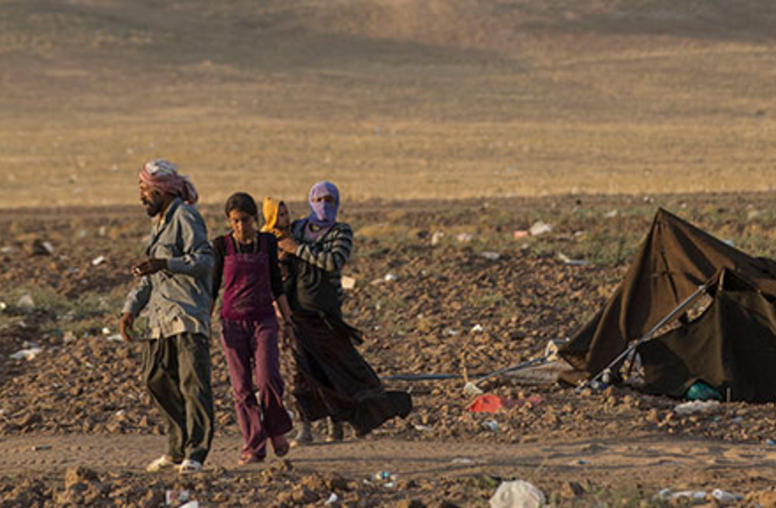
'Islamic State' Attacks Fuel Anger, Cloud Talk of Reconciliation in Iraq
The devastation wrought by the past year’s renewed conflict in Iraq -- and equally by the long slog to dislodge the Islamic State -- can be captured in the frame of a teenage boy. The new fighting atop a decade of war after the 2003 U.S. invasion brings not only further physical damage, but a dangerous breakdown of the social fabric.